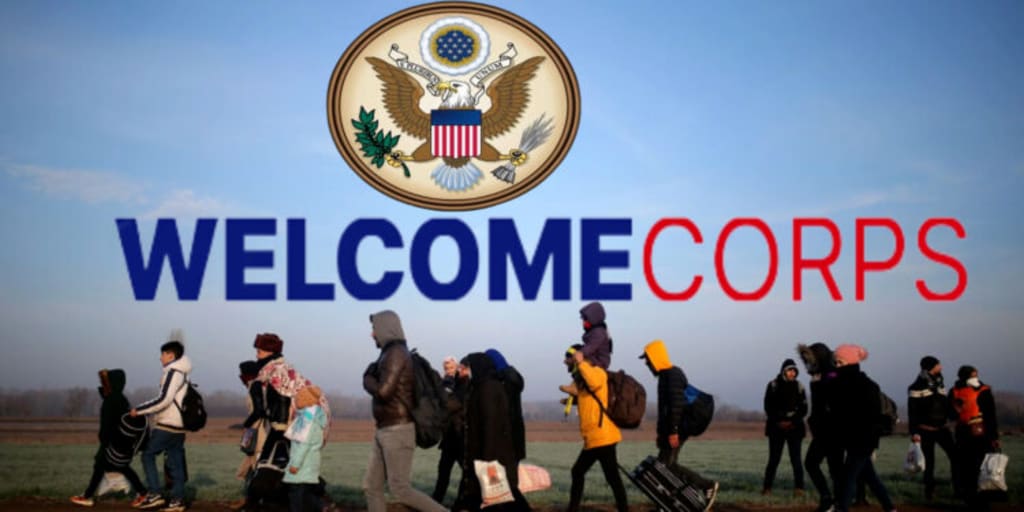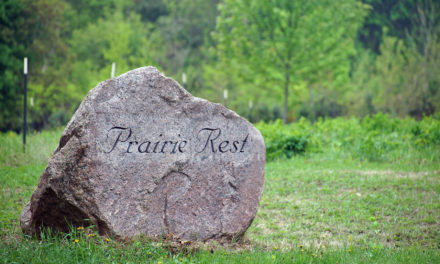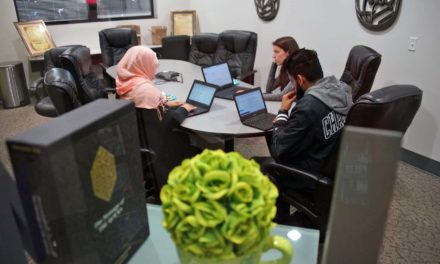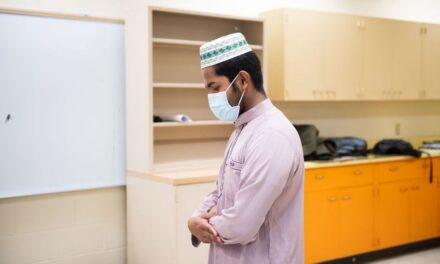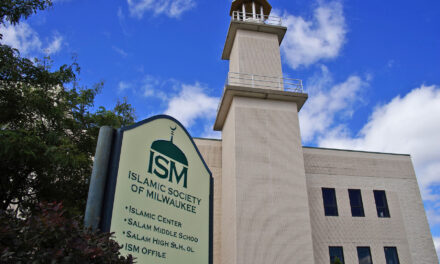On Jan. 19, the Biden administration launched Welcome Corps – a private sponsorship program that allows groups of American citizens to sponsor the arrival and resettlement of displaced refugees, marking a major pivot in U.S. immigration policy.
Providing a safe haven for those fleeing war, persecution and violence was handled exclusively by designated agencies and other non-profit organizations for the last four decades. Now, that work will involve the goodwill of private citizens.
“Throughout the process, private sponsors will be able to rely on resettlement experts for guidance and support,” said secretary of state Anthony Blinken in his public announcement broadcast.
“Under this new initiative, people in communities, faith-based organizations, colleges and universities, veterans’ associations, and other groups will be able to play that role — taking the lead in helping refugees find a place to live, enroll kids in school, obtain basic goods like furniture and winter clothes.”
The program aims to mobilize 10,000 Americans and transition 5,000 refugees this year. The refugees who will be assisted by the Welcome Corps teams are expected to arrive in April.
Given that Wisconsin is listed as one of the 18 “Welcome” states, Milwaukee is well positioned to be an early driver of the program as it unfolds.
Although it is still early in the roll out of the Welcome Corps program, the project has managed to capture a lot of enthusiasm. Over 20,000 people signed up during the first week of its launch.
The Welcome Corps model will formalize that generosity and guide people who want to help. On the other hand, there are some unanswered questions regarding a new program’s ability to handle a massive influx and backlog of refugees.
Responding to the Afghan Refugee Crisis
The Welcome Corps program aims to enhance the capacity of resettlement agencies/non-profits that suffered during the Trump administration.
Funding cuts, which induced staff shortages, and the global pandemic all weakened the country’s refugee admissions infrastructure, leaving agencies and non-profit organizations ill-equipped to handle the massive influx of Afghan families seeking refuge.
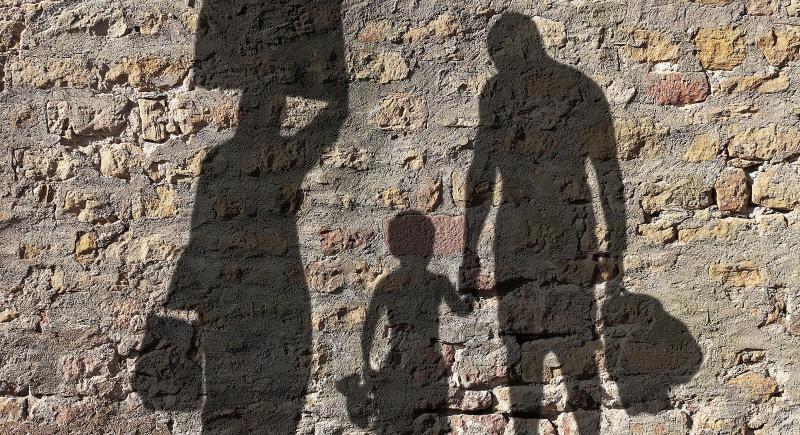
In Wisconsin, these agencies have worked hard and worked together to ensure vulnerable communities are protected. A non-exhaustive list of agencies is posted online by the state’s Department of Children and Families (DCF): Workforce Resource, Inc. (Barron County), Catholic Charities Green Bay, Jewish Social Services of Madison, World Relief Corporation (Fox Valley), International Institute of Wisconsin (Milwaukee), and Lutheran Social Services of Wisconsin and Upper Michigan, Inc. (Milwaukee).
Across the street from Lutheran Social Services in Milwaukee is Hanan Refugee Relief Group (HRRG) – a 501(c)(3) nonprofit organization that has played a critical role in helping refugees transition to their host communities.
“There’s a huge backlog of refugees in the U.S. and worldwide,” said Sheila Badwan, the director of HRRG in Milwaukee. “We see the new program as a way to support these resettlement agencies – not to take away from their responsibilities.”
HRRG’s Milwaukee chapter has been championed for the wide range of services they provide to folks in crisis, including Syrian, Somali, Rohingya, and Afghan refugees/evacuees.
Operating from 3927 S. Howell Ave, HRRG is a community-based humanitarian group that witnessed firsthand the circumstances which prompted a need for a program like Welcome Corps.
“I think what really changed everything was the Afghan crisis,” said Badwan. “There were so many refugees that came at one time, they needed support, and not just from the resettlement agencies.”
Pros and Cons of Welcome Corps
Badwan sees the utility in a program that would extend capacity for agencies and nonprofits in this space, but questions if the program’s 90 day welcome plan would be long enough to truly support families.
In parallel, the Milwaukee Muslim Women’s Coalition (MMWC) also recognized the utility of the Welcome Corps initiative while highlighting some unanswered questions:
“What are the safety parameters that will be instituted?” said Janan Najeeb, president of the MMWC. “Who will monitor to prevent labor or other trafficking and make sure the vulnerable individuals and families are not taken advantage of? As a women’s organization that has worked with young female refugees that are here alone, this is a real concern.”
MMWC is a well established informational source across the state. And a myriad of institutions and media outlets consider them a go-to resource for cultural information on Islam and Muslims. Their Afghan ‘Buddy” program has evolved to be a weekly meetup for children and their mothers to learn and have fun.
“If safety parameters are instituted,” said Najeeb, “I believe this will be a huge success because it can lessen the time for family reunification and help support the community organizations that have been assisting refugees for years due to a sense of duty, cultural connection, or humanitarian concerns.”

In Sept of 2021, Milwaukee Muslim Women’s Coalition President Janan Najeeb and MMWC board members were invited to accompany Democratic Congresswomen Gwen Moore and Ilhan Omar of Minneapolis, and Lieutenant Governor Mandela Barnes, on a tour of Fort McCoy. Najeeb invited some of the MMWC board members, Sheila Badwan and several other Muslim women leaders in Milwaukee.
The Logistics of Welcome Corps
Since its launch, many government headlines have called Welcome Corps a “private sponsorship” program. However, this description may mislead readers at first glance.
Welcome Corps is a public-private partnership spearheaded by the Department of State in collaboration with the Department of Human and Health Services (HHS). Fully implemented, one might call it a “co-sponsorship” program, given that experts in refugee resettlement and protection work with both the refugees and their welcomers throughout the entire sponsorship.
A webinar explaining Welcome Corps and answering the questions of relevant stakeholders was recorded. Over 5,000 people registered to attend. The recording is on the program’s website as an Information Session video.
Published on Jan. 30, the video alludes to where many of the Welcome Corps team will come from. Several nonprofit organizations are listed as implementers of the program:
- The Community Sponsorship Hub
- The Church World Service
- The Refugee Welcome Collective
- The Integrated Immigrant and Refugee Services (IRIS)
- The International Rescue Assistance Project (IRAP)
- The International Welcome Committee
- Welcome.US
Together, these groups have teamed up to help people who want to become private sponsors. Likewise, the program is designed to strengthen and extend the capacity of existing resettlement agencies.
“In the first few months of the Welcome Corps program, refugees welcomed by sponsors will come from sub-Saharan Africa,” said Ann O’Brien, a speaker guiding the webinar. “Many have been waiting for years for the chance to start a new life in a community they can call home.”
Immigrants who go through the Welcome Corps program will be given official refugee status by the U.S. government, authorizing them to work and making them eligible for select benefits. After one year, the refugees can adjust their status to permanent residents and secure a green card. After five years, they can apply to become a citizen.
The program is divided into two phases – the first being the matching phase, the second being the identification phase. Regardless of the phase, sponsors and newcomers in the program do not need to be related. Instead, they are paired based on their respective abilities, needs, and circumstances.
In the matching phase, Americans looking to sponsor newcomers are connected with refugees who have already been approved for resettlement in the U.S. In the identification phase, Americans identify a particular refugee or refugee family in need of protection that they’d like to work with. This phase will launch mid-2023.
Before phase one can start, however, there is an initial vetting process that potential welcomers must pass.
The Vetting Process
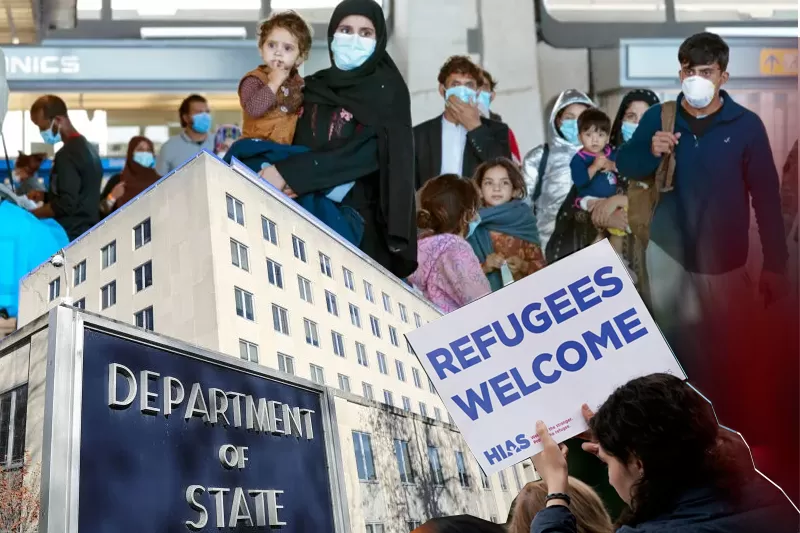
Refugees undergo standard security and health screenings. Potential welcomers undergo an individual vetting process, and if successful, they may apply as a member of a Private Sponsor Group (PSG).
Individually, each potential welcomer must complete and pass a background check through the Welcome Corps website. Background checks will assess whether or not a person is a U.S. citizen or lawful permanent resident over the age of 18.
Since this is a USCIS program, a criminal background check will also be conducted.
In accordance with The Adam-Walsh Child Protection Safety Act of 2006, a criminal record showing offenses against a minor will be flagged. This law is especially focused on flagging sexual offenders.
Beyond that initial vetting criteria, a potential welcomer is assessed by their application in the context of their PSG. In other words, one must demonstrate an ability to sponsor a refugee within their group, their assigned Welcome Corps team and their community.
The Welcome Corp program comes on the heels of several refugee crises – including the plight of Afghans, Ukrainians, Syrians, Venezuelans and more. Donations of private U.S. citizens have been key in supporting non-profits who help refugees. Now citizens are given the opportunity to participate directly by sharing knowledge and resources so refugees can build a new life in their local communities.
